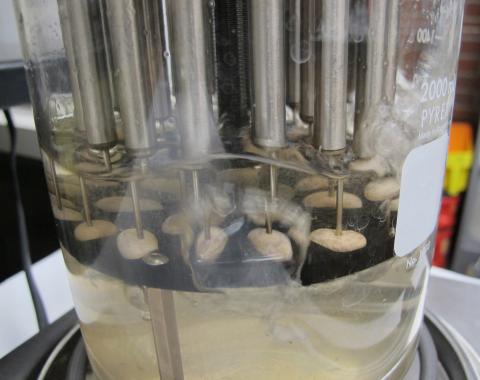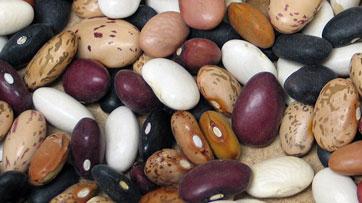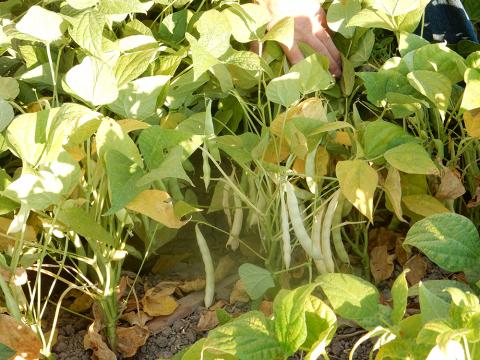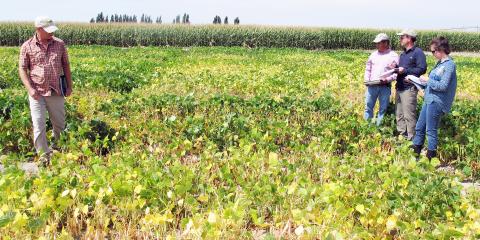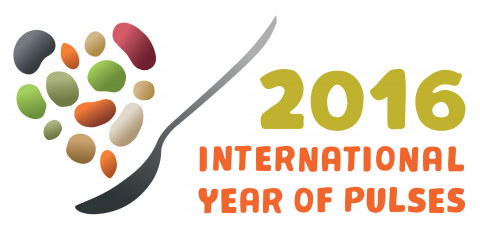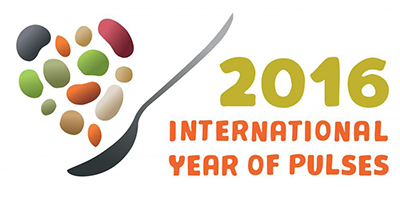UNL Dry Bean Breeding Program Announces Public Release of Two New Dry Edible Bean Varieties
April 19, 2021
Two new dry edible bean varieties will be available to producers in the near future — a great northern bean suitable for direct harvest and the other, a slow-darkening pinto bean variety with longer shelf life.
When Developing New Lines of Dry Edible Beans, Cooking Time Matters Too
March 8, 2019
When breeding new lines of dry edible beans, disease resistance, drought tolerance, and plant architecture can be observed in the field, but measuring cooking time is a chore for the laboratory. Cooks prefer varieties that cook in 30-45 minutes.
2018 Dry Edible Bean Variety Trial Results
January 10, 2019
The dry bean report includes a description of the 2018 variety trials and 10 tables that list yield, moisture, test weight, and other data for each variety within the market classes.
New Dry Bean Variety, Panhandle Pride, Available for 2019
January 10, 2019
Panhandle Pride’s genetics, including resistance to bean common rust and common bacterial blight, and its upright plant architecture and larger seed size are key attributes of the new variety. Two more dry bean lines are expected to be released in 2020.
Worldwide Collaboration to Breed Better Dry Beans
September 27, 2018
Researchers from USDA, UNL, and other land-grant universities are working together to help identify traits to improve dry bean quality in Nebraska and worldwide.
Dry Bean Production in Nebraska - The Early Years
August 4, 2016
The authors look at the early history of Nebraska's dry bean industry from initial (and low-yielding) production in 1895 to its growth through marketing contracts and new processing facilities in the mid 1930s.
Rollins Emerson - Early Dry Bean Researcher in Nebraska
June 3, 2016
Rollins Emerson, who became a world renowned corn geneticist, should first be recognized as the catalyst for developing the Nebraska dry bean industry. This article is one in a series by UNL faculty at the Panhandle Research and Extension Center exploring dry bean and yellow pea production in Nebraska, as part of 2016, the International Year of the Pulses.
The US Dry Bean Industry Begins in New York
May 27, 2016
While native Americans had been eating dry beans for years, dry beans weren't commercially produced in the US until well into the 19th century. With a boost from Civil War military consumption in the 1860s, the industry grew and developed to become the global food supplier it is today. Nebraska ranks first in the nation in production of dry northern beans and fourth in overall dry bean production.



